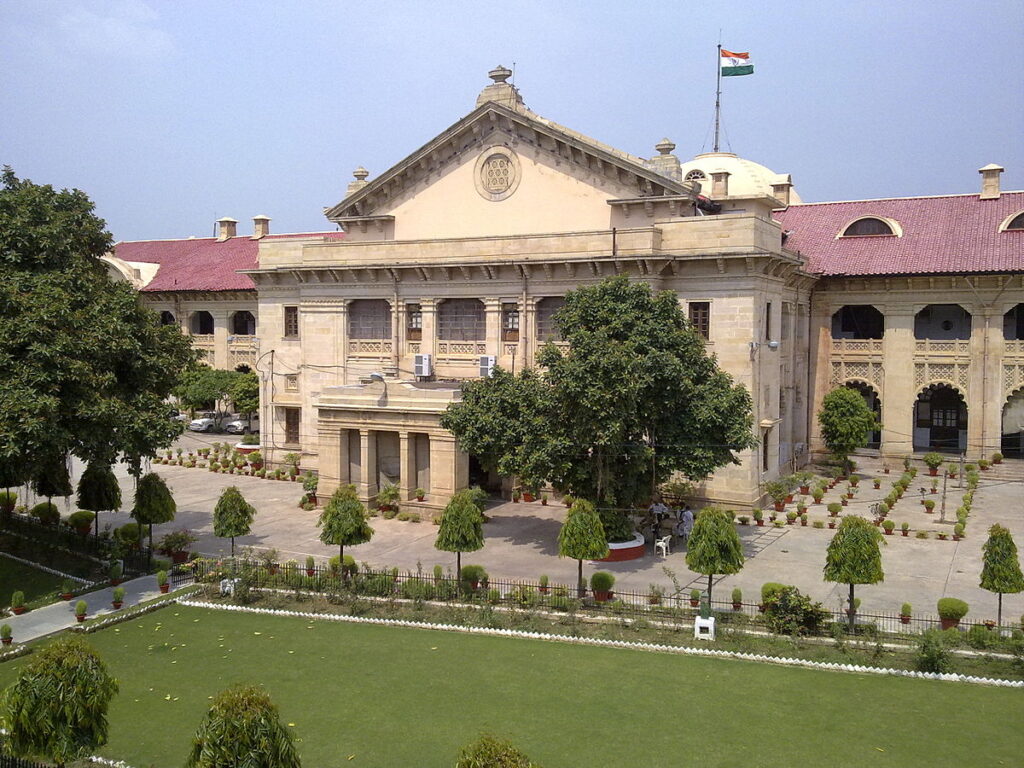The Allahabad High Court stated that laws or rules allowing an employer to reject a candidate for not revealing criminal cases are unfair.

The Allahabad High Court stated that any law, rule, or guideline allowing an employer to refuse to hire a candidate solely due to not disclosing criminal cases is unfair and unreasonable. This ruling came from a Writ Petition that questioned whether an appointing authority could reject a selected candidate just because they did not reveal a criminal case against them, even if the candidate was not named as an accused and had not faced trial. Justice Salil Kumar Rai, in a Single Bench, noted that treating every non-disclosure as a disqualification is unjust. It would be arbitrary to disqualify someone for not mentioning a minor criminal case that would not make them unfit for the job. Therefore, any law or rule that allows an employer to deny a candidate based on such non-disclosure is also unjust and goes against the principles of fairness and non-arbitrariness in administrative actions.
The Bench emphasized that checking a candidate’s character and background is necessary to determine their suitability for a position. While a candidate who hides important information cannot expect to have an unrestricted right to be hired, they do have the right to not be treated unfairly. The decision made by the authority must be reasonable and objective, considering the specific facts of the case.
The Petitioner was chosen for the Constable position during a selection process following a 2015 advertisement from the Uttar Pradesh Police Recruitment and Promotion Board in Lucknow. Selected candidates had to submit an Affidavit stating whether they had any criminal cases against them or if any were pending in court. They were warned that providing false information could lead to dismissal from service. In 2018, the Petitioner submitted his Affidavit, marking that he had no criminal cases registered or pending against him.
Later, the Petitioner learned that a criminal case had been filed against him under various sections of the Indian Penal Code and the SC/ST (Prevention of Atrocities) Act, 1989, although he was not named in the chargesheet. He discovered this information after submitting his Affidavit, prompting him to file another Affidavit with the details of the case. The District Magistrate found him suitable for the Constable position, noting he was wrongly named in the FIR. However, the Superintendent of Police denied the Petitioner’s request and deemed him unfit for the role, leading the Petitioner to challenge this decision in the High Court.
The High Court observed, based on the facts presented, that when a candidate fails to disclose a criminal case, several factors must be considered. These include the type of case, the seriousness of the charges, the trial’s outcome, and whether the acquittal was clear or based on technicalities. Additionally, the candidate’s socio-economic background should also be taken into account when evaluating their suitability for a position. The Court pointed out that typically, if an authority misuses its discretion in making a decision, the case is sent back to that authority for a new ruling after the previous order is canceled.
In this instance, the petitioner was disqualified and denied an appointment letter solely due to not disclosing a criminal case against him. The Court stated that this non-disclosure alone should not prevent the petitioner from being appointed. It also noted that the case has been pending since 2019, and the petitioner was selected based on a notification from 2015. The Court highlighted that the petitioner comes from a small town and there is no evidence suggesting that his background or character makes him unfit for the position. Furthermore, the respondents did not claim that the petitioner’s past, aside from the non-disclosure issue, rendered him unsuitable for the constable role. Therefore, the High Court granted the Writ Petition, annulled the contested order, and instructed the respondents to appoint the petitioner.
Cause Title: Ashish Kumar Rajbhar v. State of U.P. and 3 Others (Neutral Citation: 2024:AHC:172418)








